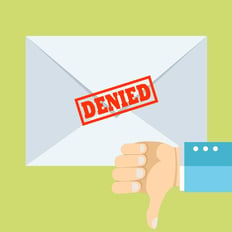3 Common Errors Affecting Your Claims Management Reimbursements
Receiving claim denials can put a lot of pressure on your optometric practice and your biller. Billing managers already struggle to keep up with the large volume of insurance claims that they need to submit, they often don’t have time to take a look at the rejections or measure their performance to see how they can adapt to maximize your practice’s profits from claim reimbursements.
While getting a denied claim is stressful, many of the reasons for the denial are avoidable. Today, we’ll look at three of the common claim filing errors that may be affecting your claims management.
Avoid These Common Claims Management Errors
Duplicate Claims
The most common reason for your claim to get denied is that you or your biller submitted duplicate claims that include the same information about the patient demographics, providers, date of services, and billing codes. This error generally occurs when a biller finds an unpaid claim in the system and submits it without looking to see if there’s an original submission.
To resolve this issue, when you or your biller find an unpaid claim, investigate the reason the claim was unpaid in the first place. Looking at the EOB or ERA will help you take the proper steps towards fixing the claim if the claim has been rejected or denied.
Late Filing
Managing insurance claims is a tedious, time-consuming task. It’s also time-sensitive. Timely filing deadlines put added pressure on your billing manager to submit claims and work rejections. However, many practices keep a busy schedule, making it difficult for the biller to keep up with the rejections. As rejections slip through the cracks, the likelihood of the claim missing its timely filing deadline increases.
Knowing your timely filing deadlines will help you keep track of how much time you have for a particular claim. If you keep that in mind and regularly look at your rejected claims, you can reduce the odds of a claim getting denied due to late filings.
Payer Doesn’t Support Frequency of Services
Even though some follow-up appointments may be needed, payers may deny a claim because they don’t support the frequency of service. To help correct this, make sure you check the patient’s benefits before the patient’s appointment. If there’s a coverage limit and you think the service is important for the patient’s eye health, you should work to get an Advance Beneficiary Notice (ABN) and explain why you think the appointment is needed.
Resolve other common claims management errors by checking out the tips in the "Top 7 Reasons for Denied Claims" ebook.

